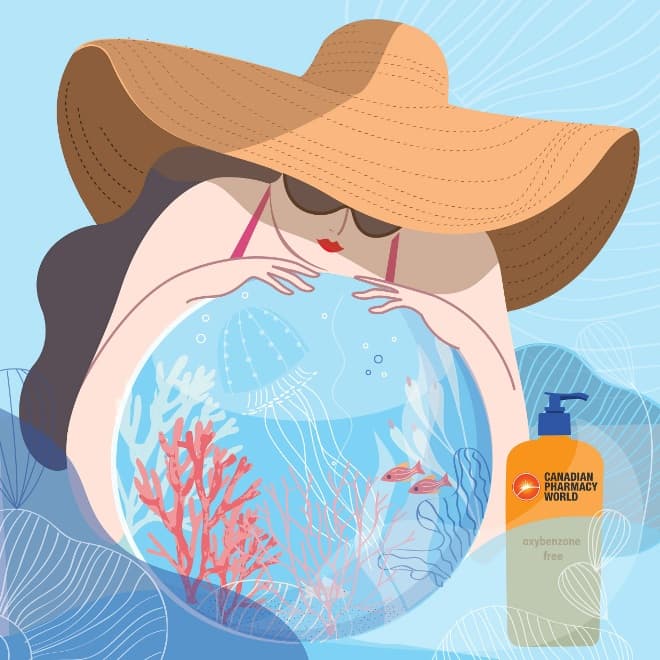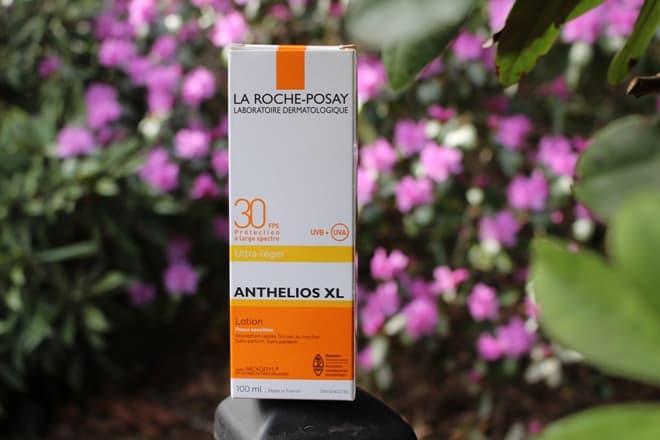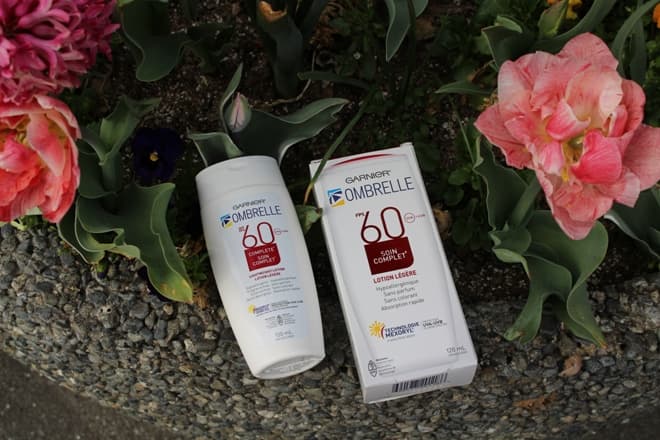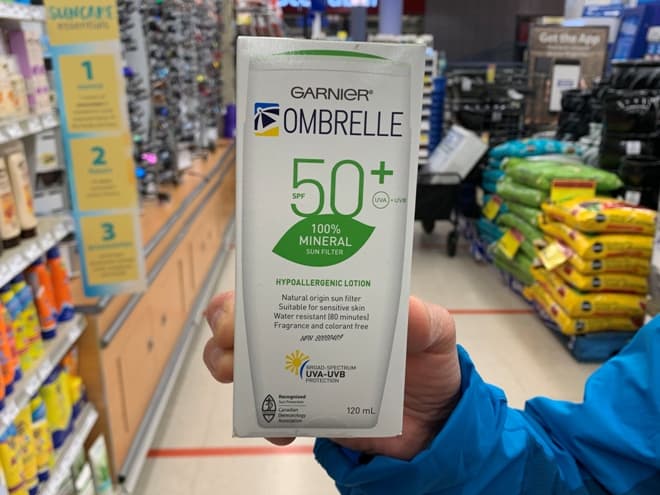
Photo Credit: by @CANPharmaWorld
Perhaps one of the most common misconceptions around sunscreen is that there’s no need to wear sunscreen if the sun’s not beaming down brightly outside. But that’s no more than an April fool: the truth is that you should be wearing sunscreen every day, no matter if it’s rainy and cloudy or bright and sunny.
But what other bits of confusion are there around sunscreen? There are many common misconceptions and little known facts around sunscreen. Before you buy and wear sunscreen, you should consider what to look for in sunscreen ingredients and learn the truth about buying reef safe versus standard sunscreen. Also, you may need some tips for choosing the right sunscreen for you.
In this article, we’ll go over some of our popular sunscreen brands and discuss a proper approach to sun safety. We’ll also give you tips on how and when to wear sunscreen and recommend different sunscreens for you to buy. Luckily, we sell many of the best sunscreen brands on our website, so you don’t have to go far when you’re ready to order and stock up on sunscreen for your family.
Keep reading to discover all you need to know about wearing sunscreen to protect your health and possibly even extend your life!
What to look for in sunscreen ingredients: is oxybenzone dangerous?
The sun’s powerful UV rays can cause everything from uncomfortable sunburns to potentially fatal skin cancer if your skin is left unprotected when you’re outdoors. In fact, any time the sun is up, you’re at risk for contracting harm from the sun’s rays. So you know you need to wear sunscreen...but how do you know which sunscreen to buy? What do you look for in sunscreen ingredients? And, perhaps more importantly, what sunscreen ingredients should you avoid when shopping for sunscreen?
These are important questions to ask when getting ready to add a daily sunscreen to your routine. You want to make sure the sunscreen you choose is helpful and not harmful in any way--because believe it or not, some sunscreen ingredients can actually be harmful to your health and the world around you. The reason your sunscreen ingredients matter is because they’re being absorbed through your skin. Sure, you’re not consuming or ingesting it, so it may seem like it doesn’t matter. However, what you put on your skin can be just as impactful as what you consume, in some cases, so you want to make sure you’re not rubbing your skin with harmful chemicals and ingredients that may bring harm even while protecting you from overexposure to the sun.
According to Consumer Reports, “There have been a lot of worrisome reports recently about the health effects of sunscreens with chemical ingredients such as oxybenzone and avobenzone… Some experts are concerned that these chemicals may be absorbed through the skin, leading to skin irritation, hormonal disruption—even skin cancer. … a new report out today says there may be risks to developing fetuses when pregnant women are exposed to oxybenzone. Adding to the confusion, the American Academy of Dermatology (AAD) says sunscreen is safe, but the American Academy of Pediatrics tells parents it’s best to not use sunscreens with oxybenzone on their kids.”
It is recommended that people apply sunscreen year round and apply it liberally every few hours if they are going to be experiencing prolonged sun exposure, so this is an important area of further examination. At this time, the FDA still says that people should continue to wear sunscreen as they normally do, though further research into these potentially dangerous chemicals is underway. The FDA has requested more information from the sunscreen industry about these chemicals, though that does not necessarily mean they have been deemed unsafe--just that they require a closer look.
There are 12 ingredients the FDA is currently investigating further, but the one that stands out the most is oxybenzone. It is widely used in sunscreen products because it is quite effective at protecting the skin from UV rays.
According to Consumer Reports, “About half of the 80 sunscreen lotions, sprays, and sticks in CR’s current sunscreen ratings—including all of the recommended ones—contain oxybenzone. There’s evidence that oxybenzone is absorbed through the skin more than was once thought, and in some studies, researchers have found detectable levels of it in human blood and breast milk. Based on animal studies, there’s concern that it could interfere with the normal function of a number of hormones, including estrogen. In a 2001 study, researchers from the University of Zurich in Switzerland found that rats who ate food with oxybenzone mixed in had a 23 percent increase in uterine size.”
That’s why oxybenzone is concerning and potentially worrisome. A common alternative to oxybenzone sunscreens is mineral or natural sunscreens. These are less of a cause for concern because they do not get absorbed into the skin and therefore do not have the same potential to cause harm. However, some are concerned that these types of sunscreens are not as effective, as they do not tend to perform as well in sunscreen testing. So, until further research is completed, what is best is probably to do your research and make the safest possible choice that you feel comfortable with for you and your family.
It’s also important to consider whether the ingredients of the sunscreen products we use are harming the environment around us when we wear it--especially oceans and waterways, since people often wear sunscreen when they are spending time outdoors or hanging out at the beach. In the next section, we’ll take a look at the truth behind reef safe sunscreen.
The truth about reef safe sunscreen: does reef safe really matter?
Many have heard about the recent emphasis on reef safe sunscreen. But does using reef safe sunscreen really matter? What difference does it make? Many people wonder if reef safe sunscreen really makes a difference and aren’t sure of its importance.
In a story published by USA Today, we discover just why some sunscreens that are not considered reef safe are being banned, which demonstrates how important reef safe sunscreen really is. “Hawaii last year became the first state to ban sales of sunscreens with oxybenzone and octinoxate, chemicals that are found in as much as three-quarters of sunscreens on the U.S. market. Key West, Florida, followed suit last month, making it the first city to ban sales of such sunscreens. Florida and California are considering similar bans.
The bans are a response to a decline in coral health. Corals around the world have been stressed to the point of turning white, or “bleaching,” which happens when they expel the energy-supplying algae that live within them. Scientists often cite warming oceans because of climate change as the main culprit, but initial research shows sun-blocking chemicals oxybenzone and octinoxate also might be damaging corals, spurring bleaching."
In other words, the extent of the harm that non reef safe sunscreens can cause is actually spurring laws to be changed, and certain skin care products are being banned entirely. This shows the drastic need for more beachgoers to use sunscreens that don’t harm our oceans or reefs. Reefs are an important aspect of the ocean’s ecosystem, and the ocean keeps our world running and habitable for us. So, the importance of reef safe sunscreen really cannot be overstressed.
Some recommend using UPF clothing as your main protective factor for your skin. That way, you don’t have to worry about whether the sunscreen you’re wearing is damaging the environment around you. You’ll still need to apply sunscreen to any skin not covered by clothing, but at least you’ll be wearing far less than you normally would be.
Of course, sunscreen isn’t the only thing taking its toll on the environment. Other factors such as pollution, overpopulation, and climate change are all wreaking havoc. However, sunscreens can make it worse, so it’s important to get a handle on things and all do our part to combat the declining health of our delicate reefs and sea life.
Tips for a proper approach to sun safety: lesser known facts about sunscreen
When it comes to sun safety, many people have misconceptions about how to approach keeping their skin safe from the sun’s harmful rays. For one, it’s not common yet to think reef safe when shopping for sunscreen, but that will become increasingly more common and necessary as time goes on.
The Food and Drug Administration makes the following recommendations when it comes to using sunscreen for sun safety.
“As an FDA-regulated product, sunscreens must pass certain tests before they are sold. But how you use this product, and what other protective measures you take, make a difference in how well you are able to protect yourself and your family from sunburn, skin cancer, early skin aging and other risks of overexposure to the sun. Some key sun safety tips include:
* Limit time in the sun, especially between the hours of 10 a.m. and 2 p.m., when the sun’s rays are most intense.
* Wear clothing to cover skin exposed to the sun, such as long-sleeved shirts, pants, sunglasses, and broad-brimmed hats.
* Use broad spectrum sunscreens with SPF values of 15 or higher regularly and as directed.
* Reapply sunscreen at least every two hours, and more often if you're sweating or jumping in and out of the water.”
It’s also important to note that you need to store your sunscreen properly to ensure its effectiveness. You’re also supposed to apply sunscreen 15 minutes before going outside. You should cover your entire face and body (except for your eyes and mouth) or whatever is not covered by sun protective clothing. That means making sure oft-forgotten places like the tops of your feet and behind your ears is also covered! Many people also forget to protect their lips, so using a lip balm with SPF is essential, too.
You should also know the difference between regular sunscreen and broad spectrum sunscreen. Broad spectrum sunscreen creates a chemical barrier that protects you from both UVA and UVB rays. SPF value also matters; a higher SPF offers more sun protection. Most people should wear a sunscreen that’s at least SPF 15, and fair skinned people should wear closer to SPF 30 or higher. You should also be aware that sunscreen expires! Make sure to check the expiration date of your sunscreen and throw away old sunscreen that may not be effective any longer.
How do I choose the best sunscreen? Best safe sunscreen available from Canadian Pharmacy World
Wondering how to choose the best sunscreen? What’s most important in a sunscreen is that it keeps you and your family safe. But, as we’ve learned, it’s also essential that your sunscreen keeps our oceans safe, too.
Sunscreen is available in many different forms--lotion, spray, cream, oil, paste, gel, and even whipped sunscreen. What you choose should depend on what works best for you and your lifestyle. People have different preferences when it comes to how they apply sunscreen every day. In addition, many beauty products also contain SPF so you get a boost in your everyday makeup or skin care routine.
Here at Canadian Pharmacy World, we offer several popular sunscreen brands on our site, including Anthelios, Banana Boat, Ombrelle, and more. Some of them are oxybenzone or paraben free.
A few of our newly added oxybenzone free sunscreens are:
* Banana Boat Simply Protect Kids Sunscreen Spray 50 SPF/170 gm
* Banana Boat Simply Protect Sports Sunscreen Spray 50 SPF/170 gm
* Banana Boat Simply Protect Kids Lotion 50 SPF/180 gm
* Banana Boat Simply Protect Baby Lotion 50 SPF/180 gm
* Banana Boat Simply Protect Sensitive Lotion 50 SPF/180 gm
* Banana Boat Simply Protect Sport Lotion 50 SPF/180 gm
* Ombrelle Complete 100% Mineral 50 SPF

Photo Credit: by @tiffany.ironfan on instagram

Photo Credit: by @tiffany.ironfan on instagram

Photo Credit: by @tiffany.ironfan on instagram
If you have questions about our sunscreen products or availability, don’t hesitate to get in touch with us. We’re happy to answer your questions and guide you toward the best sunscreen for you and your lifestyle. You can order from our site and have your sunscreen delivered--for FREE--directly to your door.
###
Skye Sherman is a professional writer who has been published in numerous local and international outlets. She has also worked for a wellness company and is very familiar with the healthcare industry. She holds a degree from a Florida university.
Your email address will not be published. Required fields are marked with *.